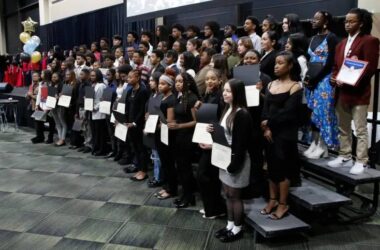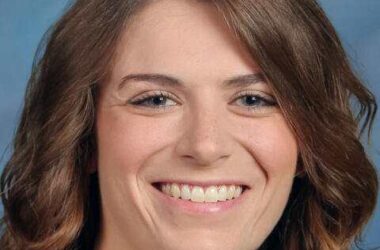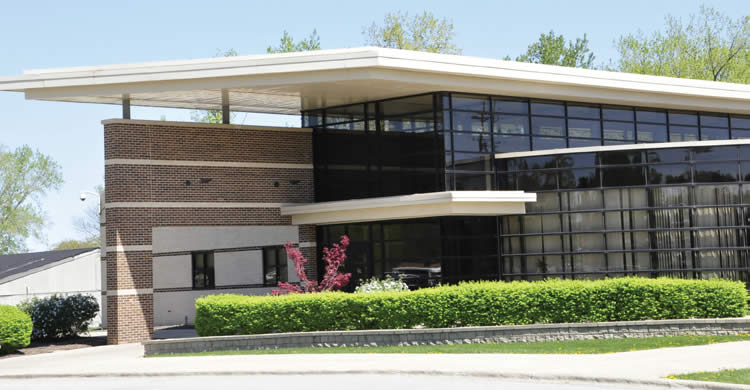Sister Loretta Brennan and Josephine Kulea to received honorary degrees

Josephine Kulea is an activist for women’s and children’s rights and has rescued more than 1,000 girls to date through her foundation. She will receive a Doctor of Humane Letters degree during the Dec. 5 commencement at Tangaza College in Nairobi, Kenya. (Photo courtesy of Josephine Kulea)
The ceremony will also symbolize the culmination of a 10-year partnership between DePaul’s School for New Learning and Tangaza College.
Founded in 1898 in Chicago, DePaul is the largest Catholic university in the United States. Tangaza College, which is also a Catholic institution, prepares graduates for ministerial and social work. The partnership between the schools was originally founded to provide greater access for religious women to earn bachelor’s degrees, and has since expanded to include laypeople and religious men.
The program officially began accepting students in 2006 with funding from the Conrad N. Hilton Foundation. Its goal was to educate a qualified workforce, build the capacity of Catholic religious congregations to carry out their missions, and contribute to the revitalization of Africa. This year, there will be 27 students graduating year with degrees in leadership and management, bringing the total to approximately 143 since the program’s inception. Students in the program are chosen by their communities because of their leadership potential. The graduates represent religious communities from Kenya, Rwanda, Burundi, Congo, Ghana, Nigeria, Sudan, Tanzania and Uganda.
Educator, spiritual guide and leader
Sister Brennan has devoted her life to leading programs that encourage spiritual awareness and access to education.
Before she earned her bachelor’s degree in theology from the University of Melbourne, Australia, she served as a program director for Catholic education programs, taught religious education to teenagers, and was an early supporter of the Motor Mission concept, which brought Catholic education to children attending state schools in the rural areas of Melbourne. She later joined the Congregation of St. Brigid, whose mission is to serve the church and society through the ministry of education and served in leadership roles, including novice directress for six years.
In 1998, she moved to the United Kingdom and joined the Carmelite Friars where she was instrumental in implementing Rainbows for All God’s Children, a program for children and young adults suffering bereavement from divorce or death in their families. She returned to Melbourne in 1994 to take on roles of lecturer at the Yarra Theological College and the Heart of Life Spirituality Centre, and director of the Yarraga Sabbatical Programme of Australian Congregational Leaders of Religious Institutes. In 2000, Brennan left Australia for Africa and joined the Brigidine community in Kenya.
Brennan arrived at Tangaza College in 2002 and became a tireless advocate for the school. She sought out partnerships, collaborations and networks with other institutions that greatly enhanced educational opportunities for students. One of those partnerships was with DePaul University and its School for New Learning to offer a Bachelor of Arts degree program. She subsequently worked to develop and launch Tangaza’s Centre for Leadership and Management. Brennan served as the program’s director from its inception until January 2015.
Activist for women’s and children’s rights secures futures
As a child in Samburu County in Kenya, Josephine Kulea noticed that boys were encouraged to pursue an education, while the girls prepared for marriage. Even more troubling, some of the girls were forced into early marriage with far older men. Their families subjected them to female genital mutilation and beading — the Samburu tradition where male community leaders present a beaded necklace to girls as young as 6 to claim them for sex. Kulea found inspiration watching her mother rescue girls from forced marriages and then providing them a place to stay, despite her family’s own limited resources.
After training as a nurse and gaining experience working for public health organizations, Kulea founded her own nonprofit to rescue girls from harm and guide them toward educational opportunities.
In the beginning, she shouldered the responsibility on her own, using her personal savings to enroll girls in school after rescuing them from early marriages. Recognizing the greater impact she could have with assistance, she enlisted the support of friends and the community in 2012 to create the Samburu Girls Foundation. Through a combination of advocacy and on-the-ground work, the foundation seeks to improve the lives of young women and girls in northern Kenya. A group of dedicated volunteers works with Kulea and local authorities to rescue girls — regardless of tribe or clan — from early marriage, female genital mutilation and beading.
Kulea and her volunteers have rescued more than 1,000 girls to date. She also works with key community stakeholders to influence policy changes that would benefit girls and women. Under her leadership, the Samburu Girls Foundation will continue helping young Kenyan women in need take control of their lives and secure their futures.
The culmination of a ‘revitalizing’ partnership
“The mission of this collaboration was to educate Catholic religious congregations to contribute to the revitalization of Africa,” said Marisa Alicea, dean of the School for New Learning. “Our graduates have done just that. They have gone on to make significant impacts including working with some of the poorest and most vulnerable communities in hospitals, schools and jails throughout Africa.”
As part of the collaboration between DePaul and Tangaza College, the School for New learning worked hand-in-hand with faculty at Tangaza to teach them best practices in adult education, competence-based education and prior learning assessment. DePaul also provided professional development opportunities for Tangaza faculty through training opportunities, workshops and meetings.
“Even though this 10-year partnership is coming to an end, the continued increase in class sizes shows us that Tangaza faculty are flourishing with the tools and training we’ve shared with them,” Alicea said. “The School for New Learning faculty will also continue to be involved with Tangaza through its new alumni-led leadership guild and through the life-long professional bonds.”
The School for New Learning at DePaul University provides a distinctive approach to learning for adults, with customized programs that build upon abilities and experiences, add knowledge and develop skills to help achieve personal and professional goals. A fundamental idea behind the school is learning from experience. More information is online at www.snl.depaul.edu. Information about Tangaza College is online at www.tangaza.org.
Source: www.depaul.edu








